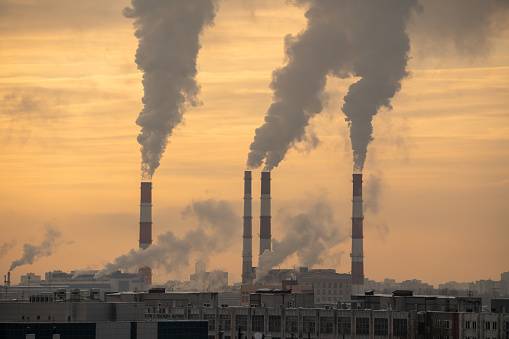
Carbon dioxide emissions are the main cause of global climate change. Photo: Getty
Rich countries reached their target of providing $100 billion a year in climate change aid to poorer countries for the first time in 2022, two years later than promised, the OECD said on Wednesday.
The failure to meet the deadline has undermined credibility in climate change negotiations, and the OECD report comes as countries race to set more ambitious targets by November.
In 2009, developed countries committed to raising $100 billion a year by 2020 to help low-income countries invest in clean energy and cope with the worsening effects of climate change.
More than a decade later, in 2022, the goal was finally met for the first time, raising $115.9 billion, according to the Organisation for Economic Cooperation and Development (OECD).
“This achievement comes two years after the original 2020 target year,” said the OECD, which tracks official data on climate finance pledges.
The $100 billion target falls far short of what experts say developing countries need for adaptation measures such as renewable energy and coastal defenses against rising sea levels.
A UN-convened committee estimates that these countries, excluding China, will need $2.4 trillion per year by 2030 to meet their climate and development needs.
Donors have been accused of repackaging existing aid pledges as climate finance and providing the money primarily as loans rather than unconditional grants.
Climate finance has been a thorny issue at the U.N.'s annual climate change conference, with negotiators this year trying to set a new target to replace and surpass the $100 billion goal.
The hosts of this year's COP29, in natural-gas-rich Azerbaijan, have made the issue a priority and hope to sign an ambitious agreement at their summit in November.
©Agence France-Presse

